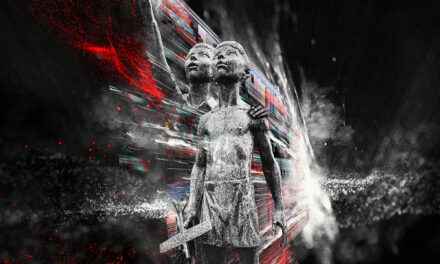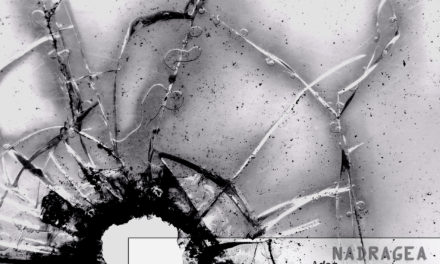
Ye Gods
May Your Love Shine Brighter than the Sun
self-released
May Your Love Shine Brighter than the Sun is the third Antoni Maiovvi LP under the Ye Gods banner in 2025, acting as a thematic capper to the two preceding albums The Arcane & Paranormal Earth and Black Moon. Where the first record found an uneasy balance between the esoteric and earthly concerns, and the second as something of a subconscious exploration of the unknowable, the trilogy’s conclusion is simultaneously its most graspable and sure-footed in intent and execution. Certainly, the ritual ambience and abstraction is still present, but where those records wrestled with the impenetrable, Your Love finds Maiovvi at his most grounded and harmonious.
While the distinction might not be immediate, there’s definitely a less fraught and more peaceable vibe to the songs on May Your Love Shine Brighter than the Sun than either of its predecessors. Where the skittery rhythm track to “Mouth of the Eye” could in other contexts be used to denote anxiety or dread, the serene pads and gentle chords that float atop its punchy percussion sounds cast it as a foundation, holding the song’s shape without boxing it in. Alternately, the slow squeaky synthline of “May Your Heart Burn Bright” bounces off its walls of shimmery reverb, creating gentle paths through its cloudy ambience, so its disappearance and re-entry in the mix suggests an indeterminate, but not unsettling vast landscape.
While the focus on texture and the creation of a centered mood are the album’s primary markers, Maiovvi doesn’t allow his arrangements to drown in soupy ambience. Indeed, where the record excels in finding unanimity in its busiest and most potentially chaotic moments; “Samekh” is awash with bells, hand drums, subsonic kicks and whirling delays and echoes, their placement in the mix putting them in orbit with one another, contrasted but never clashing. Similarly on the ambitious “May Your Palaces Become Themeparks” (the most Coil-like composition of Ye Gods’ catalogue) the layers of glitches, reversed and mangled samples and wailing voices somehow create a sense of tenuous, but palpable bliss, assured if not entirely graspable.
Final track “The Weight of this Work” ends up being both a coda for the trilogy of albums and for Maiovvi’s aims for this era of Ye Gods; the calmness with which he intones its lyrics stands in contrast to the seeming failure they describe, suggesting that while he may not have found answers, nor perfectly encapsulated the primal mysteries these records described, he has found some form of serenity in the act of exploration. The song’s abrupt ending punches the message in; life goes on in the face of matters both corporeal and metaphysical, examined or not. However comforting or unsettling that conclusion might be, Ye Gods navigated to it in a genuine and engaging fashion, well worth revisiting in part or in whole. Recommended.




